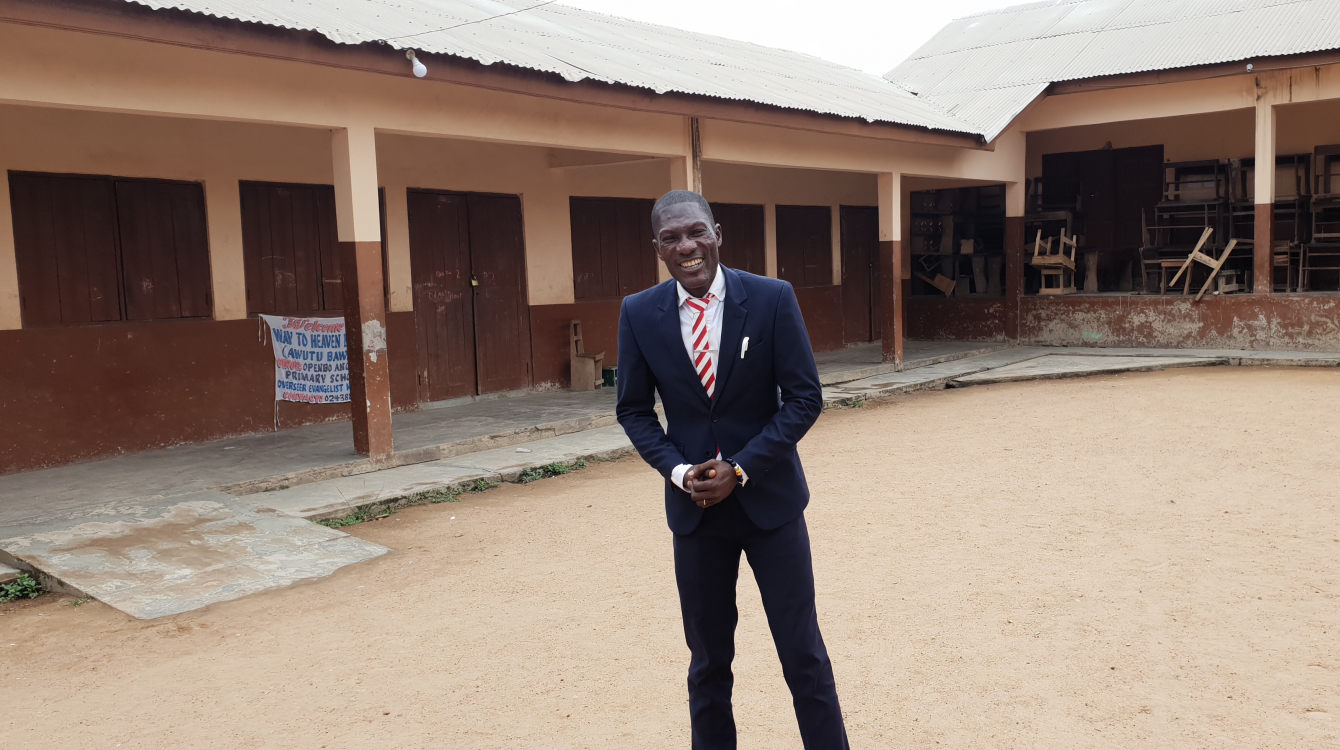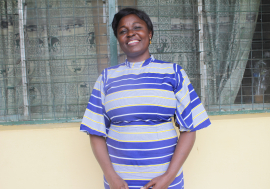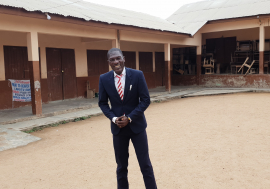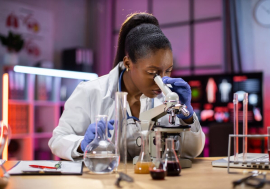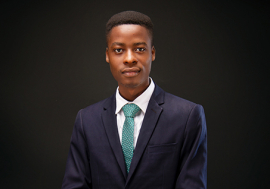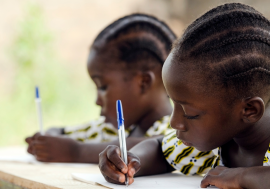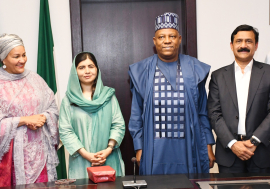Ahead of the UN’s Transforming Education Summit Mr Quansah spoke with Cynthia Prah of the UN Information Centre in Accra about his teaching career and what can improve learning. Here are the excerpts:
What is your name and where do you teach?
My name is Sam Quansah. I teach at Opembo St. Francis Anglican Basic School, in Bawjiase, in Central Region, Ghana.
What do you teach?
I teach all subjects, including numeracy and literacy, science, our world, our people, religious and moral education, creative art, etc.
How long have you been teaching?
I've been teaching for 18 years now.
Why did you become a teacher?
To fulfill my passion and earn a living. I was inspired by my grandfather. He was an educationist. He rose to the level of director at Assin Fosu [also in Central Region]. When I completed secondary school, he was like, ‘My boy is brilliant, and I want him to step into my shoes.’ So I decided to become a teacher.
Can you tell us a little about your educational background?
I attended secondary school from 1996 to 2000. Fortunately, I was a little brilliant and I received a government scholarship to further my education later.
I passed my subjects very well and I wanted to go to the university straight away, but my grandfather said ‘You have the ability to teach because I can see you've been teaching your colleagues. So it is better you teach before you go to the university.’
So, I went to a teacher training college, also in the central region. I completed it in 2004.
As teachers we should remain committed to the profession. We should be dedicated and continue to make sacrifices for our learners.
How would you describe your experience so far as a teacher?
I've been able to acquire in-depth knowledge about the behavior of people in my community, especially my students, their parents and my colleague teachers.
You see, the students we teach are from various homes, and with different personality traits that they demonstrate in school. At times it is not easy for teachers to handle them. But as role models, we try to calm things down.
In essence, are you saying that teaching goes beyond the classroom?
Yes. I am also involved in activities in my community. I am a panelist in a local radio programme. I go there every Sunday to educate the children on issues related to citizenship.
What are you most proud of in your 18-year career and why?
I was very proud when I was selected as the ‘Overall Best Male Teacher’ in my district in November 2020. And because of that, I gained much respect in society.
Do you have any regrets about becoming a teacher?
Not at all. Teaching is my passion.
What are the enjoyable aspects of your job?
It is seeing my students happy when I teach and when they can understand the concepts I teach them. It makes me happy and proud because, at least, I feel I am achieving my aim as a teacher.
What are the challenging aspects of your job?
I will say inadequate infrastructure and logistics. I'm talking about computers and projectors to aid in effective teaching and learning, and schools not having computer and science laboratories.
Also, some classrooms are not conducive for learning, especially those in the interior. Sometimes rains or bad weather conditions affect learning and teaching.
How can these challenges be addressed?
I appeal to philanthropists, non-governmental organizations, and other benevolent individuals to partner with the government to provide our educational needs. The government cannot do it alone because of the large number of schools in the country. So, a holistic approach is necessary.
If there is one thing you have the power to change in teaching, what would it be?
It would be the theoretical nature of our subjects. I would change it so that the approach is more practical, interactive and learner-centered.
Most of the time, a teacher is standing, talking to the children without involving them practically. It is best to involve them practically so that teaching is more interesting, and the children become part of the learning process.
I appeal to philanthropists, non-governmental organizations, and other benevolent individuals to partner with the government to provide our educational needs.
Also, effective teaching requires the use of teaching aids. If aids and materials are not readily available, things become difficult for the teacher. Most of the time, we try to improvise. Let's say I'm teaching science and I need something like a cylinder. If I don’t have one, I will use a sachet of water, which is not good enough.
Compared with other professionals, how are teachers in Ghana regarded?
Teaching in Ghana is regarded as a noble profession. I would say even other professionals are taught by teachers. So, we have that respect and are regarded as role models in society.
What message would you like to send to teachers all over the world, particularly those in Africa?
I would say they should remain committed to the profession. We should be dedicated and continue to make sacrifices for our learners.


